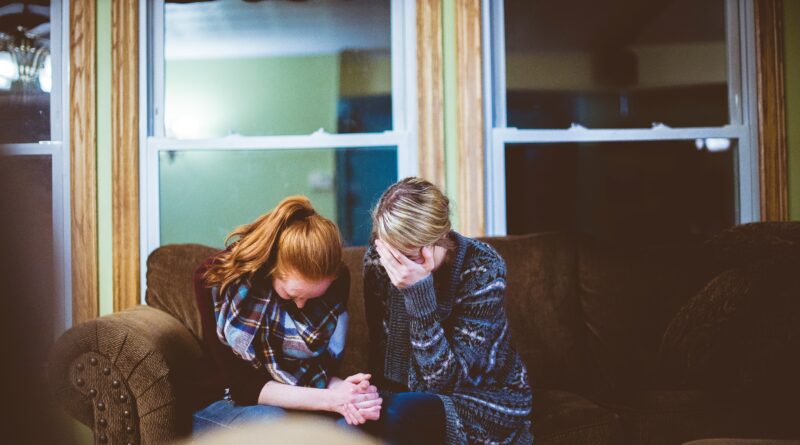Loss Your Loved One – How To Cope With Crisis?
There is a moment, inevitable as the turning of the tide, when each of us must face the wrenching departure of someone beloved—a crisis woven into the very fabric of our existence. We tend to bind grief and mourning tightly to the event of death, as if they were its sole province, yet I have come to see that loss unfurls its tendrils across a far broader landscape. It strikes when a vocation, that sturdy scaffold of identity and purpose, collapses beneath us; when a home, resonant with the hum of past joys and sorrows, slips from our grasp; or when the ideals that once illuminated our inner world fracture and fade. These are not mere abstractions—they bear down upon us with a visceral heft, as real as any physical wound. Mourning, then, becomes a kind of bridge, frail yet essential, spanning the chasm between what was and what must now be. It is an intimate odyssey, a passage through swells of melancholy, flickers of rage, and the fog of disorientation, as we seek to comprehend the absence that looms so large.
So too, there are other losses— quieter, perhaps, but no less profound—that pierce us with a grief rivaling that of mortality’s final stroke. A treasured object, its edges softened by years of touch, shatters irreparably; a pet, whose boundless affection once greeted us like a daily sacrament, falls silent; a friend, keeper of our shared stories, drifts beyond reach; or a partner, with whom we wove the tapestry of a life, is torn away. Each severing leaves behind a hollow, a palpable void that echoes with what once was. These ruptures compel us to reckon with a world remade, a task that can feel as daunting as charting an unlit path. To mourn them is to sit with the pain, to let it reshape us, much as a neurologist might trace the rewiring of a mind after injury. The loss of a dog’s eager nudge may strip away a thread of daily comfort, just as the end of a friendship or love unravels the future we had dared to dream. Yet in this act of mourning, we do more than endure—we pay tribute to what has been lost, groping our way forward through the debris, until, almost imperceptibly, we uncover anew the resilience of the human spirit, its capacity to find meaning amid the scattered remnants of yesterday.
Acknowledging the Depth of Your Grief
Grief is not a single thing, not a static presence, but rather a shifting, protean force—alive in its own way, unpredictable in its ebb and flow. It is not merely the domain of death, though that is its most well-known guise. It may arrive in the absence of a voice once familiar, in the weight of a vanished touch, in the quiet dissolution of a future once imagined. It does not announce itself with neat labels or follow a predictable script. One moment, it is a hollow ache; the next, a sharp and sudden storm. There is no formula, no “correct” way to grieve.
To acknowledge grief is to grant it shape, to give it permission to exist rather than forcing it into exile. And in doing so, one also grants oneself permission—to feel, to remember, to heal in ways that are neither linear nor uniform. Society often imposes its own impatient clock, nudging us toward resolution, toward a sense of “moving on.” But the mind does not always obey. Some days, loss may be a mere whisper at the edges of awareness; on others, it may crash in with the force of a memory too vivid to ignore. It is essential, then, to be patient—with the process, with the self. If words help, write them. If silence is needed, embrace it. If speaking to the wind gives relief, then let the wind carry what burdens you. Grief, after all, is not an enemy to be conquered, but a presence to be understood.
Related Story
Finding Meaning Amid the Fragments
Loss does something peculiar to the mind—it dismantles the familiar architecture of our world, leaving us to navigate a landscape we no longer recognize. The story we lived by is fractured, yet in time, we gather its pieces, arranging them into something new. This is not about forgetting or moving on, as the world so often insists, but about asking, “What now?” Meaning is not manufactured; it emerges quietly and in its own time.
The echo of a familiar laugh in a stranger’s voice. A melody, long forgotten, stirs something deep and bittersweet. These moments do not erase the loss, nor do they ask us to; rather, they offer a way forward, revealing that even after devastation, life still pulses with moments worth grasping. Grief remains, but it changes—it softens, shifts, and finds its place within us. Time does not erase it, but it does smooth its jagged edges, making it easier to carry. One day, you may find yourself smiling at a memory rather than flinching from it. This is not a betrayal but a sign of survival, of a heart learning to hold both absence and presence in the same breath.
- Grief is not something to overcome but something to integrate. It does not disappear; it becomes part of you, altering but not defining you.
- Meaning is not imposed but discovered. It arises from the smallest, most unassuming moments—a gesture, a habit, an unexpected connection.
- Time does not heal in the way we expect. Instead of erasing grief, it allows us to coexist with it, to carry it in ways that no longer weigh us down.
- Resilience is not about forgetting but about continuing. To live fully is not to leave loss behind but to carry it forward in a way that allows for joy alongside remembrance.
Helping yourself
In coming to terms with the loss – particularly the death – of a loved one, the people best able to cope could be those who come from cultures that have strict, formal, and intense mourning rituals. In modern society, you are often expected to act as if nothing has happened, but research has shown that mourning is an essential part of coming to terms with a loss. Mourning occurs in three consecutive stages. But grief should not be used as an excuse for maintaining sympathy or for not changing your life. There comes a time – although its arrival is ill-defined – at which you have to give up some of your grief and rejoin the mainstream of life.
Mourning is also dangerous to physical and mental health if it does not progress properly through its various stages. Mourning that restarts after it has apparently finished, often accompanied by other signs of clinical depression, is another sign that professional psychological help is needed.
Divorce and Other Types of Crisis
It is natural to grieve when a marriage ends in divorce, when you lose your job or suffer a loss of similar proportions. In some ways, losses such as these are more complex to cope with than death. With death, someone has gone from this earth, and although the loss is painful after the numbness is over, you can and must start to come to terms with it and begin to create a new life.
With divorce, the “lost” partner is still alive, so beneath all the feelings that exist, there lurks the notion that the relationship might somehow be revived. You will probably have friends in common who may tell your ex-partner’s latest news and induce a feeling of nostalgia. For this reason, many people find it impossible to start mourning a divorce until long after it has occurred. Often, it is the remarriage of one of the partners that finally spurs the other into proper and necessary mourning.
Also crucial in divorce is the sense of rejection with which it is associated. Although you might feel you could have improved the quality of a dead person’s life, death is not usually surrounded by feelings of personal guilt. Divorce, on the other hand, is a situation in which guilt thrives, and this guilt – along with feelings of personal failure – complicates the logical steps of the mourning process.
Helping Others in Crisis
There are many ways in which you can help someone who has been bereaved.
- Let the bereaved people give the lead. Do not make judgments on their behalf about whether they should be cheered up or told to pull themselves together.
- Grieve with a bereaved person. This permits grief and shows that you, too, value the mourned person.
- Provide practical help, especially during the early stages—before the funeral and for the first few weeks afterward—when the bereaved will not feel like doing day-to-day tasks.
- Be there. Bereaved people often feel the need for help and support, even if they do not use them. Your support should not stop after the first few days of mourning but will be needed for many months.
- Be aware. If you are sensitive to a bereaved person, you will see when he or she is ready to be distracted from grief. When this time comes, seize the opportunity.
Get updates and read additional stories on the Health Orbit Fan Page.
For Guest posts, Sponsored posts and other details, please click ‘Contact Us’ page.




